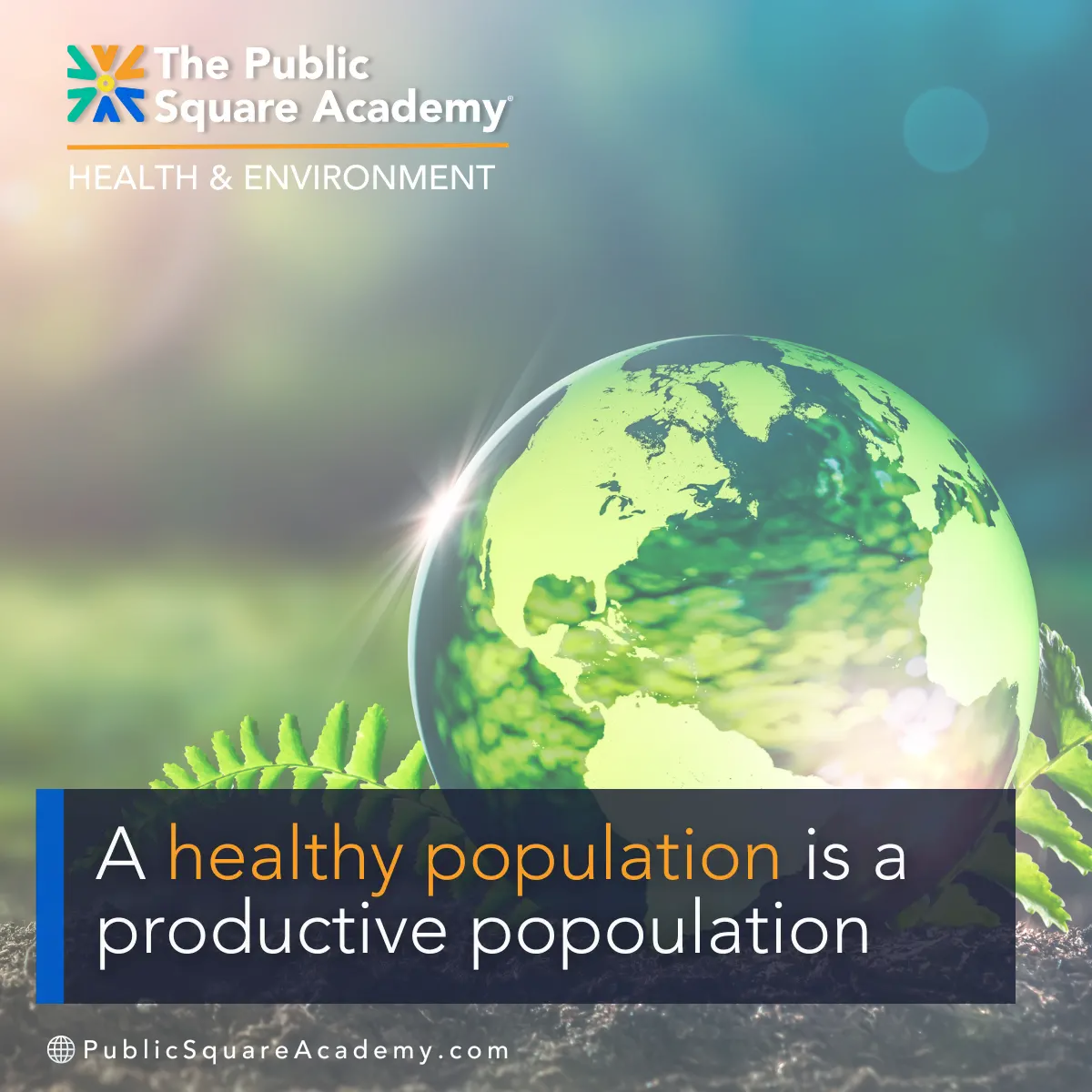“Self-made gods, we are accountable to no one with only the laws of physics to keep us company. We are consequently wreaking havoc on our fellow animals and on the surrounding ecosystem. Seeking little more that our own comfort and amusement, yet never finding satisfaction. Is there anything more dangerous than dissatisfied and irresponsible gods who don’t know what they want.”
- Yuval Noah Harari, “Sapiens”
The well-being of all is in our collective interest. A healthy environment with an educated, safe, responsible, and wise population makes human and economic sense as a healthy citizenry is productive and effective; an unhealthy population increases our collective cost of care and remediation.
We don’t live in harmony with the land or with each other. Our collective health is out of balance: personally and environmentally. Our ecosystems are suffering human-caused mass extinctions, groundwater depletion, and climate change. For some, disruption and disorder represent opportunities for power and economic gain.
Our health is our foundation; if you haven’t got your health, you haven’t got anything.
Princess Bride Clip: https://youtu.be/fUKO_Y6RqEk
Foundations, principles, and values
The U.S. Constitution states, “The Congress shall have the Power To lay and collect Taxes, Duties, Imposts, and Excises, to pay the Debts and provide for the common Defense and general Welfare of the United States.” “General welfare” refers to the nation’s and its people’s well-being. This applies to all citizens, including their safety, defense, health, environment, and education.
The Founders knew that such provisions were necessary for the long-term success of any democratic-style or republican-style government. These core needs are as relevant to our society today as they were in the 1770s. Today’s society, moreover, has additional unique concerns to address, the results of the quarter-millennium of history that now separates us from our Founders.
Status: Issues & Challenges
Carrying capacity is the number of humans the Earth can support. As of Nov. 15, 2022, there are over eight billion humans on Earth. The population will reach 9.7 billion in 2050 and 10.4 billion in 2100. Of course, many factors contribute to this, and carrying capacity estimates vary widely. Innovative technologies and efficiencies will help, but eventually, it is intuitively true that environmental and human health will suffer – and other species – as we exceed the Earth’s carrying capacity.
Despite the U.S. having the wealthiest economy in the world, the Commonwealth Fund’s 2021 report ranks the U.S. last among the top eleven high-income countries. We spend $730 billion / year treating preventable diseases. Most of these are the results of “lifestyle” choices sold to the willing public: alcohol, unhealthy foods, smoking, and sedentary lifestyles are primary causes of heart disease, cancer, respiratory diseases, and strokes. Twenty-seven percent of diseases in the U.S. are preventable, and 40% of annual deaths are preventable. Again, we ask ‘in whose interest is it to allow this national health crisis?” Is our healthcare industry held accountable for health outcomes or only profitability?
We have made incredible progress in life expectancy, steadily increasing from 47 years in 1900 to 79 years in 2019. In the last two years, covid deaths (highest among the unvaccinated) and drug overdoses have led to declines. There are significant differences in groups, driven by “social determinants of health:” poverty, access to healthcare, food insecurity, lifestyle differences, and other systemic inequities:
Average Lifespan
83.5 Asians 79.1 Women
77.7 Hispanics 73.2 Men
76.4 Whites
70. 8 Blacks
65.2 American Indian / Alaskan Natives
Our healthcare system favors the educated, empowered, and engaged. If you are conversant in healthcare, and the more you take responsibility for your well-being, you will have better outcomes. You are more likely to engage your healthcare providers in productive conversations and advocate for yourself and your loved ones. Our system is primarily a collection of specialists who advise you on your options. But Here’s the bottom line:
The medical professionals are expert advisors, but these are your decisions.
Program Opportunities
The PSA will educate, empower, and engage people in their pursuit of health and well-being and bring the power of our communities to advocate for more effective health care and environmental health.
Suggestions for action:
- Teach members to be their own healthcare advocates or start a support group if you are a patient advocate.
- Write a well-being self-assessment course.
- Start a support group for improving member health and well-being.
- Start a local group to defend the rights of nature in our area.
- Join a partner’s community to advocate for environmental protection.

